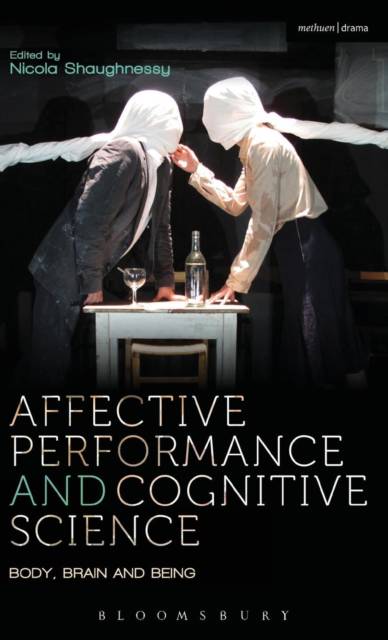
- Retrait gratuit dans votre magasin Club
- 7.000.000 titres dans notre catalogue
- Payer en toute sécurité
- Toujours un magasin près de chez vous
- Retrait gratuit dans votre magasin Club
- 7.000.0000 titres dans notre catalogue
- Payer en toute sécurité
- Toujours un magasin près de chez vous
322,45 €
+ 644 points
Format
Description
This book explores new developments in the dialogues between science and theatre and offers an introduction to a fast-expanding area of research and practice.The cognitive revolution in the humanities is creating new insights into the audience experience, performance processes and training. Scientists are collaborating with artists to investigate how our brains and bodies engage with performance to create new understanding of perception, emotion, imagination and empathy. Divided into four parts, each introduced by an expert editorial from leading researchers in the field, this edited volume offers readers an understanding of some of the main areas of collaboration and research:
1. Dances with Science
2. Touching Texts and Embodied Performance
3. The Multimodal Actor
4. Affecting Audiences
Throughout its history theatre has provided exciting and accessible stagings of science, while contemporary practitioners are increasingly working with scientific and medical material. As Honour Bayes reported in the Guardian in 2011, the relationships between theatre, science and performance are 'exciting, explosive and unexpected'. Affective Performance and Cognitive Science charts new directions in the relations between disciplines, exploring how science and theatre can impact upon each other with reference to training, drama texts, performance and spectatorship.
The book assesses the current state of play in this interdisciplinary field, facilitating cross disciplinary exchange and preparing the way for future studies.
1. Dances with Science
2. Touching Texts and Embodied Performance
3. The Multimodal Actor
4. Affecting Audiences
Throughout its history theatre has provided exciting and accessible stagings of science, while contemporary practitioners are increasingly working with scientific and medical material. As Honour Bayes reported in the Guardian in 2011, the relationships between theatre, science and performance are 'exciting, explosive and unexpected'. Affective Performance and Cognitive Science charts new directions in the relations between disciplines, exploring how science and theatre can impact upon each other with reference to training, drama texts, performance and spectatorship.
The book assesses the current state of play in this interdisciplinary field, facilitating cross disciplinary exchange and preparing the way for future studies.
Spécifications
Parties prenantes
- Auteur(s) :
- Editeur:
Contenu
- Nombre de pages :
- 320
- Langue:
- Anglais
- Collection :
Caractéristiques
- EAN:
- 9781408183984
- Date de parution :
- 30-01-14
- Format:
- Livre relié
- Format numérique:
- Genaaid
- Dimensions :
- 137 mm x 218 mm
- Poids :
- 498 g

Les avis
Nous publions uniquement les avis qui respectent les conditions requises. Consultez nos conditions pour les avis.






